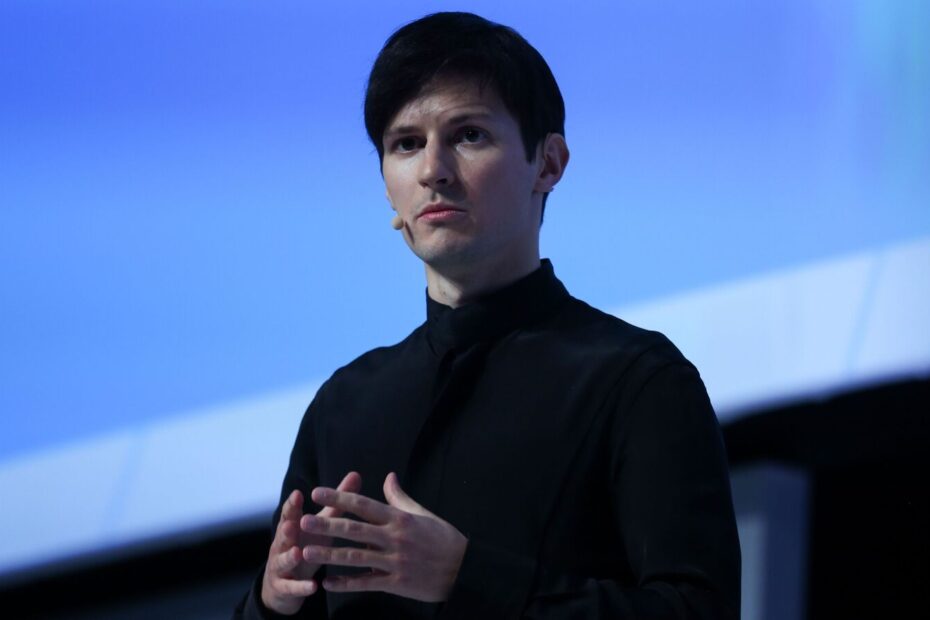Durov, who has four passports, including one from France, received support from voices across the ideological spectrum, from the far right to the progressive left. Russian media predictably labelled the arrest a Western conspiracy.
Iran’s Supreme Leader Ali Khamenei called for stricter laws to regulate cyberspace. Not to be left behind, India is re-investigating Telegram for violations of local laws.
Telegram is a unique app. It is a halfway house between an encrypted messaging service like Signal and WhatsApp, and other social media platforms. Telegram groups can host up to 200,000 users, and the company claims there are no limits on the size of media uploads and messages exchanged via the service.
These features make it useful for all manner of activities, ranging from content piracy to political canvassing. France’s President Emmanuel Macron himself has been an early adopter and user of the app.
While details on the nature of the French investigation are blurry, it appears Telegram did not cooperate with France’s information requests linked to the circulation of child sexual abuse material and drug trafficking on the platform.
Reports also suggest possible additional charges linked to money laundering and the use of encryption technology without requisite clearances under a rarely invoked and outmoded French law. The crux of the matter is that Durov, who playfully changed his name in France to Paul du Rove, has few levers to get out of jail.
India would be wise to consider the wider implications of Durov’s arrest and not see it merely as an opportunity for schadenfreude or to haul up Telegram. Firstly, the geopolitical ‘great game’ that underscores these developments is complex. Therefore, we should withhold related inferences while the case is still playing out.
Durov is more Russian than French. His business was originally backed by an oligarch close to Russian President Vladimir Putin, and Telegram has cooperated with the Kremlin’s requests to suppress opposition politics. It suspended all chat bots used by deceased opposition leader Alexei Navalny to rally popular support in the run-up to parliamentary elections in 2021.
But the Kremlin hasn’t taken a hard position on Durov’s arrest. Spokesperson Dmitry Peskov maintains that Durov has everything he needs to organize his own defence as a citizen of France. This mysterious Russian faith in the French judicial process contrasts with liberal commentary on the event.
It also seems mischievous, given the Kremlin’s own distaste for justice domestically. These circumstances are ripe for a political understanding between Paris and Moscow, one that transcends a simplistic understanding of the issues at play.
A second takeaway is that the Telegram app is still available in France despite Durov’s arrest. The investigations may eventually lead to a takedown of the app, but there are no signs of a hair-trigger impulse to ban it. Conversely, app bans in India are often ordered without requisite due diligence on grounds tenuously connected to national security.
Sudden takedowns of apps without careful investigation have led to absurd events in the past. PUBG, a wildly popular gaming app, was banned in India in 2020, only to resurface in a new avatar in June 2021 with state sanction. While the specific reason for the 2020 ban was not revealed, it was likely linked to its part-Chinese ownership.
The game was relaunched as Battlegrounds Mobile India, apparently based on assurances that its data would be stored on servers in trusted locations. In another twist, the game was taken down again in July 2022, only to reappear like a phoenix in May 2023, again with state sanction.
India needs to build state capacity to transparently investigate crimes in cyberspace and not pursue seemingly arbitrary bans. A cybercrime investigation unit attached to a court in Paris began investigating Durov much earlier in the year.
The unit is headed by Johanna Brousse, a magistrate and an international cybercrime expert who is regularly involved in training the judiciary on the subject.
India is among the most vulnerable countries in cyberspace. It ranks tenth in Oxford University’s World Cybercrime Index, a global metric of cyber criminality, and saw a 24% annual increase in cybercrimes in 2022, according to the latest report of the National Crime Records Bureau. However, unlike the French, we haven’t built any meaningful judicial capacity to investigate cybercrimes.
Our digital dividend is likely to turn into a nightmare unless we build specialized investigative capabilities.
Finally, the Durov affair may also give rise to calls for stricter regulation of communication apps like Telegram on grounds of national security. Indian telecom companies are among the biggest advocates of such action because users prefer such apps to traditional voice calling and SMS.
The telecom regulator has also raised the issue in several stakeholder consultations. But India mustn’t mistake protectionist app regulation in the name of national security as a silver bullet for capacitating itself to deal with the challenges of cyberspace.
These are the author’s personal views.
